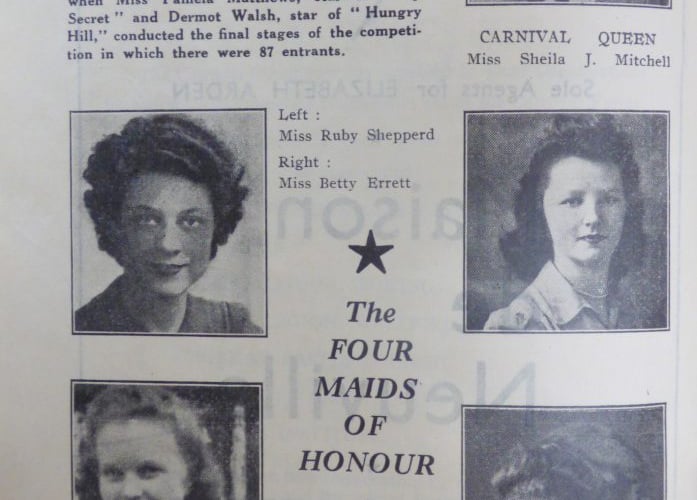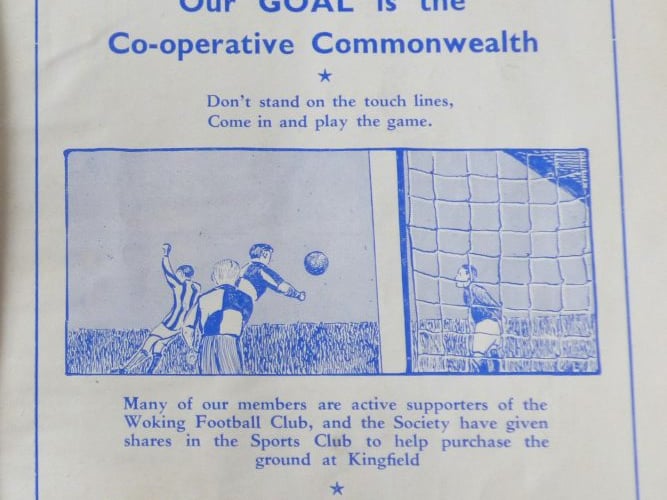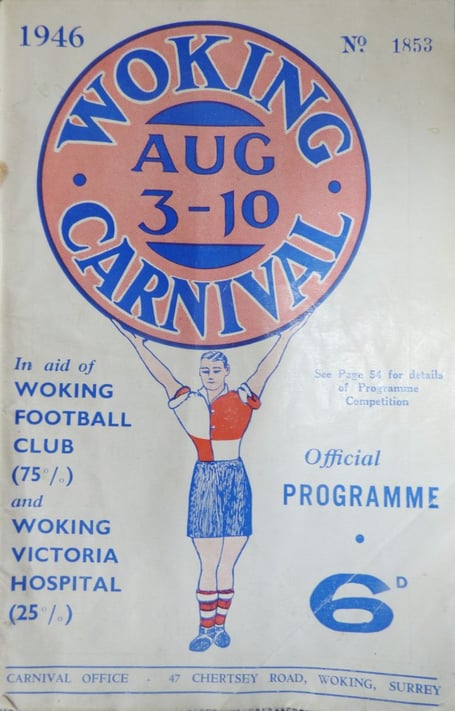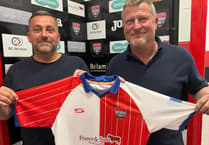WOKING has certainly known how to host a carnival down the years and the one in 1946 must have helped lift people’s spirits following the end of the Second World War.
A fascinating 74-page programme details the events that took place with a host of supporting advertisements from local traders. The carnival raised funds for Woking Football Club and Woking Victoria Hospital with a 75% and 25% spilt between the two, respectively.
Reader Rod Raggett bought this rare programme at an antiques fair being held in the village hall at Shere a while ago. He has kindly allowed us to copy it and we reproduce some of the pages here.
The carnival was held between 3 to 10 August of that year. The chairman of Woking Football Club, William J. Dixon, wrote a message in the sixpenny programme that included a thank-you to its supporters’ club, saying: “Sincere thanks are due to its members for the voluntary labour they have so ungrudgingly given. It is largely due to their untiring efforts that Woking has been able to enjoy such excellent football so early after the end of the war.”
Prior to carnival week itself there was a swimming gala at the open-air pool in Woking Park with competitions and prizes for all ages, a boxing tournament at the football club’s Kingfield ground, and a motor-cycle gymkhana held at Cobham Recreation Ground.

The carnival week was actually over eight days – from Saturday to Saturday, but not on the Sunday in between. The events were mostly at the football ground. These included Wools Brothers Supreme Fun Fair offering among other attractions “chair-o-planes, motor-cycle speedway, dodg-em cars, swings, juvenile roundabout, skittle stalls, and cork shooting”.
There was also a flower show, an ankle competition, dancing, a children’s pet rabbit show, a six-a-side football tournament, races for schoolchildren, Charles Davies & His Star Variety Show, plus “numerous sideshows”.
On Saturday 3 August, from Wheatsheaf Common, the then popular Dagenham Girl Pipers marched to the football ground for the official opening. There followed the crowning of the carnival queen, Miss Sheila J. Mitchell. Her four maids of honour were: Miss Ruby Shepherd, Miss Betty Errett, Miss Patricia Fennell and Mrs Dorothy Frearson.
Monday, 5 August was a bank holiday and there was a carnival procession that assembled at Kingsway headed by the pipe band of His Majesty’s Scots Guards. Children were allowed to join the procession, along with a “contingent from Gordon Boys’ Home, West End”, and adults were also allowed “to those showing most enterprise and originality” – wearing fancy dress perhaps?

Also taking part were local Sea Cadet corps, and tableaux (floats) from the Woking Electric Supply Company, Woking Co-operative Society, Woking & District Gas Company, the band of Woking’s Army Cadet Force, Woking and Westfield branches of the then named British Legion, the Royal Marine Band, and more besides – such as James Walker & Co, Ltd, and United Moulders Ltd, of 8 Board School Road, Woking.
In the evening there was a “comic football match” between “Carni” verses “Alites”, refereed by N. E. Wun.
The grand finale began at 10pm on 10 August and was billed as “Crystal Palace” Fireworks, after which the National Anthem was played.
Although he was only a young boy at the time, Rod Raggett has memories of being on Wheatsheaf Common and watching the Dagenham Girl Pipers march past. Therefore, when he saw the programme for sale at the antiques fair, he just had to buy it!
If you have some memories or old pictures relating to the Woking area, call me, David Rose, on 01483 838960, or drop a line to the News & Mail.
David Rose is a local historian and writer who specialises in what he calls “the history within living memory” of people, places and events in the west Surrey area covering towns such as Woking and Guildford. He collects old photos and memorabilia relating to the area and the subject, and regularly gives illustrated local history talks to groups and societies. For enquiries and bookings please phone or email him at: [email protected]


.jpeg?width=209&height=140&crop=209:145,smart&quality=75)
.jpeg?width=209&height=140&crop=209:145,smart&quality=75)
.jpeg?width=209&height=140&crop=209:145,smart&quality=75)